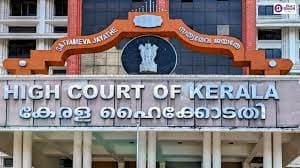
Kerala High Court to Review Unredacted Hema Committee Report Exposing Sexual Offences
Court to assess potential criminal investigations based on findings from the confidential report on women's safety in Kerala film industry
The Kerala High Court has requested an unredacted version of the Justice Hema Committee Report on the working conditions of women in the film industry, to assess whether any findings warrant criminal investigation.
The Bench, led by Acting Chief Justice A. Muhamed Mustaque, has ordered the State to submit a complete, unredacted copy of the report to the Court in a sealed cover.
The Court was hearing a Public Interest Litigation (PIL) petition calling for criminal action against individuals accused of sexual offences as identified in the report, which was publicly released in a redacted form earlier this week (on August 19).
The Court expressed concerns about how to approach the matter, particularly in light of the vulnerable witnesses who provided testimony to the Committee regarding the sexual harassment and abuse they experienced.
These testimonies were recorded under assurances of confidentiality, the Court noted.
"We understand the petitioners' predicament. Should we summon the records?
The witnesses who have come forward belong to vulnerable sections of society and cannot seek help elsewhere. What do you propose we do?
If these individuals were capable of filing complaints, they would have approached the police; instead, they confided in the Committee. What can be done now to ensure their efforts are not in vain?" the Court asked.
The petition was filed by Navas A, also known as Paichira Navas. He urged the Court to direct the Director General of Police (DGP) to initiate criminal proceedings based on the findings of the Justice Hema Committee Report, arguing that the State has a duty to prosecute those who have committed cognisable offences.
The Justice K. Hema Committee was established by the Kerala government in 2017 following a petition by the 'Women in Cinema Collective' to investigate the issues faced by women in the film industry. The Committee submitted its findings to the State in 2019.
The State Information Commission (SIC) later permitted certain parties, including journalists, to access the report after redacting personal information to protect the privacy of witnesses.
The report was released on August 19, following two unsuccessful court challenges to prevent its publication.
The counsel representing Navas asserted that the information disclosed in the Justice Hema Committee Report is sufficient to justify criminal action against several perpetrators.
However, Advocate General Gopalakrishna Kurup countered that the report was compiled as a confidential study, not a judicial inquiry.
He emphasised that the identities of the victims were protected and that those wishing to file complaints could do so directly with the police or other authorities.
Kurup clarified that the Committee was primarily tasked with studying the challenges faced by women in the film industry and recommending measures to mitigate those issues.
He added that the government might consider further action based on a review of the unredacted parts of the report.
The Court noted that the government had been unable to act against the alleged perpetrators due to the absence of formal complaints but acknowledged that the report revealed instances of sexual exploitation and harassment requiring intervention.
The Court questioned whether criminal action could be initiated based on the Committee's findings if a cognisable offence is disclosed, given the broader societal impact of the allegations.
"If someone reports being sexually abused or assaulted but does not wish to disclose the details or expose the incident, what can be done? It is not merely a personal issue; it affects society at large," the Court remarked.
The Court also addressed the challenge of maintaining witness anonymity while ensuring justice is served, pointing out that some witnesses might be reluctant to come forward to prosecute the offenders.
Nevertheless, the Court admitted the PIL and directed the government to submit a statement on the matter, along with a copy of the unredacted report in a sealed cover. The case is scheduled for further hearing on September 10, 2024.
For any enquiries or information, contact ask@tlr.ae or call us on +971 52 644 3004. Follow The Law Reporters on WhatsApp Channels.